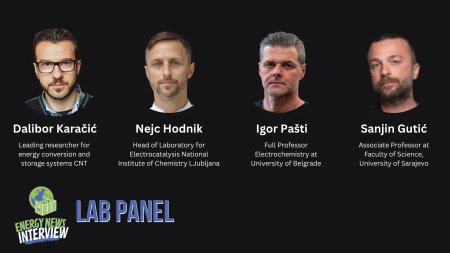Despite its allure, hydrogen is exceedingly hazardous: its flammability limit in a gas-air combination is substantially higher than hydrocarbons’. As a result, detecting hydrogen in the air is a critical responsibility for avoiding emergency scenarios linked with its leaking.
MAI is focusing its efforts on this issue. The Russian Science Foundation’s 2021 competition for funds in the field of “doing basic scientific research and exploratory scientific research by small individual scientific groups” was won by a project to build a selective thermal catalytic hydrogen sensor.
The project is being worked on by a group of graduate students, employees, and graduates from the Department of Radioelectronics, Telecommunications, and Nanotechnologies of the Moscow Aviation Institute’s Institute No. 12 Aerospace Science-Intensive Technologies and Production, led by Professor Alexander Baranov.
The Scientific and Technical Center for Measuring Gas-Sensing Sensors named after V.I. E.F. Karpov, which possesses technological capabilities for producing thermal catalytic sensors as well as analytical equipment for studying their parameters and properties, showed great interest in the work.
The most significant measurement range for hydrogen in air is from 0.1 vol. percent (lowest limit of hydrogen detection determined in different nations) to 2 vol. percent in terms of averting explosive scenarios (50 percent of the lower concentration limit of flame propagation). Thermal catalytic sensors are the best choice for this category. In compared to others, they have extra advantages such as low cost, compact size, and weight.
Despite the fact that catalytic thermal sensors have been around for decades, they are employed to measure hydrogen in the same way as they are for flammable gases and vapors. The purpose of the team’s study was to modify thermal catalytic sensors to enhance characteristics while detecting hydrogen since hydrogen and hydrocarbons have too dissimilar features, such as combustion temperature, fluidity, and explosiveness (sensitivity, response time, operating voltage, and others).
A sensor’s selectivity refers to its capacity to respond to only one chemical in a gas mixture. A catalyst is used to do this. As a result, experts must develop a catalyst that would allow the sensor to detect hydrogen while remaining unaffected by other gases.
Working with hydrogen requires a temperature of 300-400 degrees. The project’s strategic aim is to do selective hydrogen measurements in air or in combinations with other flammable gases at temperatures around room temperature. This will improve workplace safety (by lowering the amount of explosion risk) while also lowering power consumption and extending battery life.
In gas sensors, platinum group metals operate as catalysts, but not all of them have been employed for hydrogen monitoring before. The study is unique in that it uses iridium (Ir) and rhodium (Rh) catalysts in their pure form, as well as combined with platinum (Pt) and palladium (Pd) (Pd).
To enhance the characteristics and performance of thermal catalytic sensors, such as selectivity, sensitivity, response time, sensor temperature, long-term stability, and power consumption, research is being undertaken on different platinum group catalysts.
It was possible to reduce the operating temperature of the thermal catalytic sensor to approximately 80 oC as a result of optimizing the structure and composition of the catalyst of the thermal catalytic sensor, as well as changing the classical approach for measurements, whereas the operating temperature of the thermal catalytic sensor had previously been above 250 oC with similar measurements (in Russia and abroad). The sensitivity of the sensor determines the lower limit of the temperature range in this scenario. The next step is to test the sensor’s long-term stability.
“When detecting hydrogen, the sensor characteristics do not degrade over time like they do when monitoring other flammable and explosive gases.” Furthermore, to test hydrocarbons, a high temperature (400-450 o) is required, which promotes catalyst deterioration,” Alexander Baranov says.
In 2023, the project is expected to be finished.








